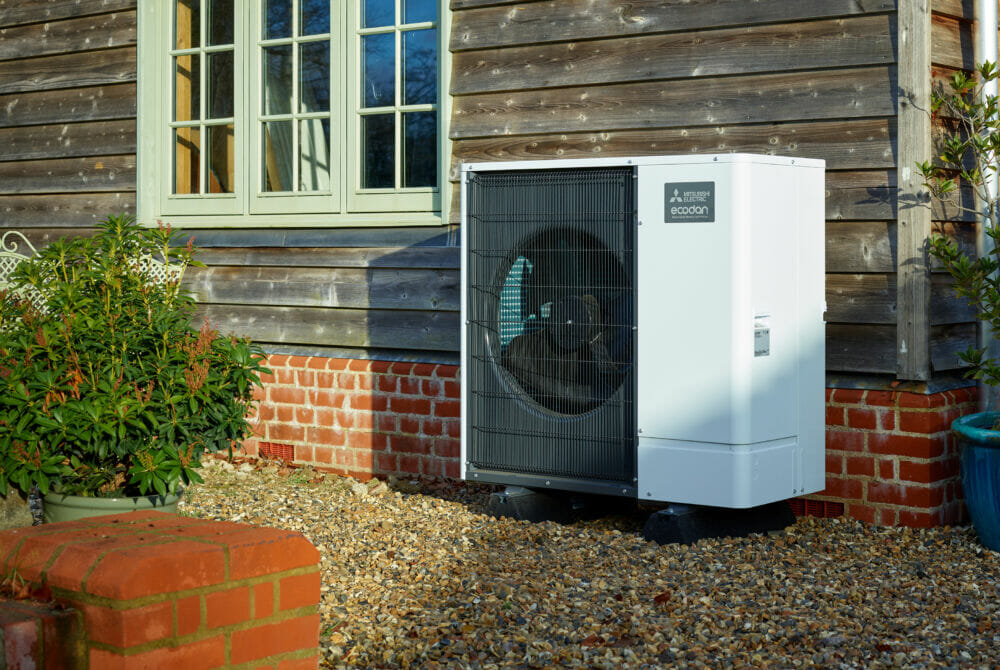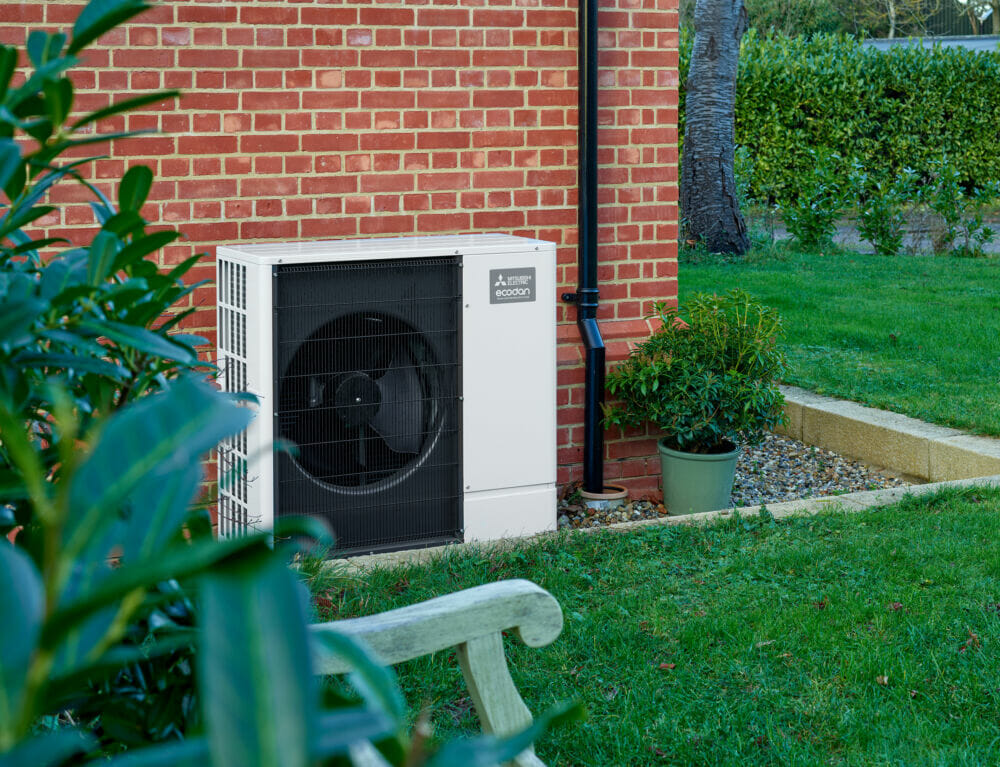
If you’ve been paying attention to the news about carbon reduction targets, you can’t have missed mention of heat pumps, the main message is clear: Heat pumps are here now, and they offer a viable solution to heating our homes in a low carbon way that will help tackle climate change.
The UK was the first major country to make it law that greenhouse gas emissions will be net-zero by 2050. When you consider 15% of our total emissions comes from heating our homes, it’s easy to see why this is a major focus.
To help achieve this, the government has announced that it is banning gas and oil-fired boilers in all new build homes from 2025.
And this is where heat pumps can really help!
Objective
The Observer ran an article “Warmth from the earth and air: could heat pumps replace our gas boilers?”
Gas and oil lobby are fighting to show that they can remain viable in a low carbon economy and heat pumps are a real threat to their dominance in the heating industry.
It’s also worth noting those parties pushing Hydrogen as part of the solution, also seem to be running an ‘anti-heat pump’ message.
Yet there remain questions about the carbon intensive production needed for this hydrogen technology and, if it can work on the scale needed, it’s at least 10 years away – we simply don’t have the time!

Stumbling blocks
The article focuses on three main stumbling blocks that are stopping heat pumps becoming mainstream: The upfront costs; the low levels of insulation; and bad press from faulty or low-quality installations.
When it comes to effective use of heat pumps, of course you need to choose a quality brand, but equally important is the design, installation, commissioning, and control of the system – and this is where training is the key.
The Heat Pump Association has set up a new programme to help train up to 40,000 installers each year and Mitsubishi Electric have also introduced online learning to make training easier, cheaper and more accessible.
A major part is educating the homeowner so that they get used to the different way heat pumps work, but this is also where the best systems have automated controls to ensure they work correctly.
Upfront costs
Heat pumps are still more expensive than gas boilers, but gas has been the dominant method of heating for over 70 years and heat pumps have been around just over a decade. The sooner we grow the installer base and produce ten times more heat pumps a year, then the costs will come down for installation.
But even before installation prices start to drop, there is one area where heat pumps win hands down, and that is over oil heating.
Installation costs for electric heat pumps are comparable or even lower than a new oil boiler and the running costs offer a serious reduction in annual bills over oil.
Insulation
Heat pumps will work most effectively in a highly insulated property; however, they can work well in even the most basic of homes.
Heat pumps can work alongside an existing gas or oil boiler with the intelligent control system able to work out when to switch over from the heat pump to the other system.
So, regardless of any plans the government may or may not have to help improve insulation in homes, heat pumps offer a viable alternative to the carbon-intensive systems that really are ‘costing us the earth’.
Russell Dean – Mitsubishi Electric’s Head of Residential Heating and Ventilation
www.ecodan.co.uk
